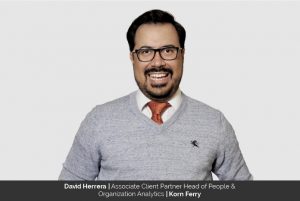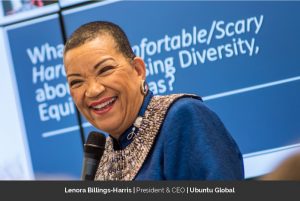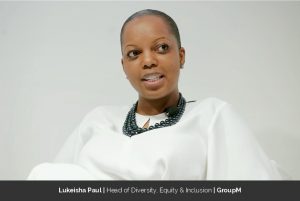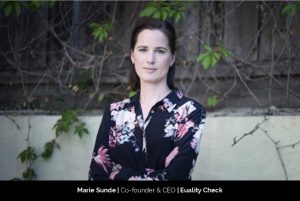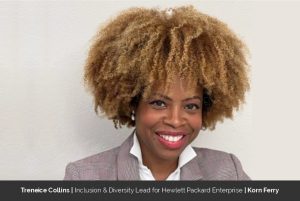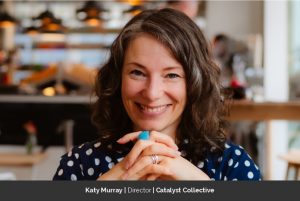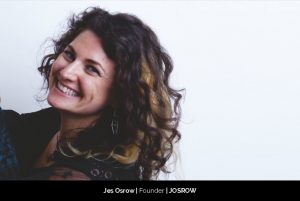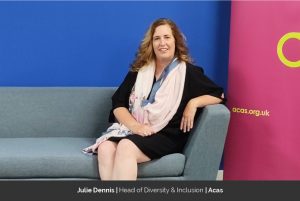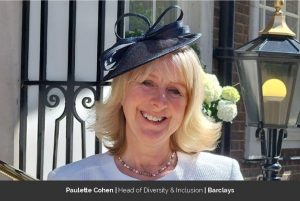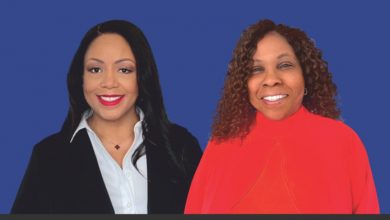Helen Andrade: An Inspiring, Organized & Disciplined DE&I Leader Building a Diverse & Plural Company
The 10 Most Influential People in Diversity and Inclusion 2023
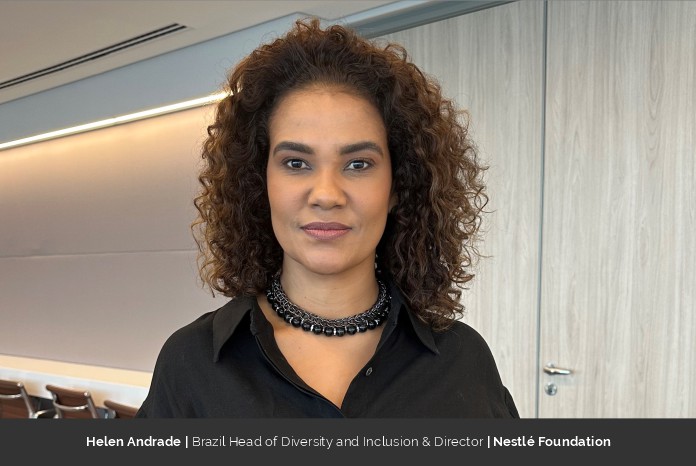
As the Brazil Head of
Diversity and Inclusion & Director of the Nestlé Foundation, Helen
Andrade’s definition of success is being at peace with her personal and
professional choices and being able to have a dignified life with her family
and friends.
“Success is relative,
but, in my opinion, it is definitely not linked to positions, money, having or
not having children, getting married or not, and other conditions linked to the
social standards of success. Success depends on being happy and at peace with
your choices, whatever they may be,” she maintains.
The Journey to DE&I Work
Helen has a long work
history, having worked since the age of 17. “I needed to work to pay for my
studies, and sometimes I reconciled it with volunteer work. In the corporate
world, I didn’t skip hierarchical levels, I advanced step by step,” she
observes.
Helen started her
career in a position hierarchically below junior analyst, that was named
training instructor. Then she worked as a junior analyst, full, senior,
specialist, coordinator, manager, and senior manager, right up to the position
she presently occupies. In her 28 years of corporate experience, she has worked
in recruitment and selection, training and development, communication, and
compensation in large national and multinational companies.
As a black woman in a
family of six women in an absolutely diverse country like Brazil, with enormous
social and racial inequality, DE&I has been part of Helen’s life since she
was born. “I learned from an early age, that education (knowledge) is the basis
to achieve what we want, and the courage to move forward, despite obstacles, is
a decisive factor. My inspiration comes from home, from my family, from my
grandmother, who is the most inspiring and strong woman I have ever known,” she
declares.
Helen didn’t decide to
work with diversity and inclusion, but, in hindsight, had already built a path
and results related to this subject. So instead of deciding, she understood
that it was a purpose and it happened naturally. “Natural does not mean easy,
but it’s part of the way I live my life and carry out my work. When we
genuinely believe in what we do, we influence other people to do the same, we
connect with people with similar purposes and attitudes, and we create a
chain,” she observes.
For Helen, her first
serendipitous connection in the corporate world took place right after
graduating from university when she participated in a selection process, and,
by chance, the owner of the company (pharmaceutical segment) was in the office
and came upon her. He then asked to talk to her and, at the end of the
conversation, mentioned that he had two starting positions at the company – one
in procurement and one in human resources – and that he believed she could work
in either one, so she chose the latter.
“He explained to me
the vacant positions and asked me to choose, and I chose human resources. After
a few years, I began to respond directly to him, and he was an extremely strict
and demanding professional. I learned how to take care of the whole without
losing focus on the details. In addition to that, I learned how to deal with
people in the corporate environment by observing the admirable work of his
husband, who was at the company quite often,” Helen recalls.
This was the first
step of many that led to her finally joining Nestlé.
Transformation Only Comes Through Action
Nestlé is one of the
largest beverage and food companies in the world and a very innovative company
in the food and beverage industry that thinks about innovation and ESG across
the business. It celebrated 100 years in Brazil in 2021, and Helen feels proud
to be working at Nestlé at present, doing the work they need to do with the
support of a great team.
She notes that there’s
strategic work at Nestlé to show the power of food to improve the quality of
life for everyone, today and in future generations. Within its business
strategy, it is committed to contributing to a healthier future for people and
the planet, reducing the environmental impact of its operations, and driving
innovation.
The company analyzes
changes in consumption habits and product innovation with a focus on
healthiness and the entire production cycle, in addition to solving operational
challenges, optimizing costs, generating growth and efficiency, and creating
solutions and products made possible by new technologies.
Helen points out that
Nestlé’s Diversity and Inclusion area aims to contemplate all communities,
cultures, and ages in the work environment. Some fronts are fundamental in
Nestlé, to which it already dedicates programs and projects, such as racial,
generational, and gender equality, people with disabilities, and LGBTQIA+. “We
know the importance of the work on raising awareness, and transformation only
comes through actions,” she insists.
Nestlé is always
attentive to changes in the world, aiming to offer a diverse and inclusive
environment for all people. Therefore, it invests in initiatives that cover new
forms of hiring and development, contemplating awareness and action. The
organization understands that this is the only way it can transform the
scenario in a reliable and lasting way, which means guaranteeing that all
people have equal rights and opportunities.
Becoming The Mirror of Brazil, a Diverse and
Plural Company
As the Brazil Head of
Diversity and Inclusion & Director of the Nestlé Foundation, Helen’s days
are hectic as she has the pleasure and responsibility of leading a center of expertise
dedicated to fostering diversity, equity, and inclusion in a continental
country (the 5th largest country in the world), at the world’s largest beverage
and food company.
“We are working to
become the mirror of Brazil: a diverse and plural company. Therefore, we have
several ongoing initiatives to promote a work environment where all people feel
respected, regardless of gender identity, sexual orientation, race, religion,
generation, people with disabilities, social origin, or other personal conditions.
We also advocate for identifying and recruiting diverse people and reducing
unconscious bias in the selection process. We believe that leadership plays a
key role in accelerating this transformation, and that’s why its senior
leadership actively works on the diversity, equity, and inclusion agenda,” she
maintains.
Nestlé’s future is to
advance on its diversity and inclusion journey consistently, engaging leaders
and every person at Nestlé to understand their responsibility and monitor the
results of all initiatives. “There’s no innovation without diversity because it
is quite difficult to think of different solutions with people with the same
profiles. Diversity, equality, and inclusion have become a reality. In other
words, a company may have been born without some perspectives, but it will not
survive without keeping in step with the global transformations,” Helen
explains.
Nestlé also has an
initiative for young people, which is a global action, and in Brazil, in 2022,
impacted more than 145 thousand young people with its actions. It currently
leads a group of 90 large companies in the country that work collaboratively
for a positive impact on development, training, entrepreneurship, and youth
employment.
Launching Initiatives That Minimize DE&I
Challenges
Advancing inclusion
and equity is challenged for many reasons. For example, people’s lack of
awareness, structural racism, and the lack of equal opportunities for all
people. However, Nestlé has advanced in initiatives that try to minimize these
challenges.
These include
mentoring programs for black people implemented in 2020; career acceleration
programs for black women; ERG
(Employee Resource Group) — also known as affinity groups; continuous mapping
of opportunities for improvement in infrastructure; work tools and practical
actions for the inclusion of people with disabilities; affirmative actions for
hiring transgender people; in addition to several other initiatives.
She believes that the
DE&I impact must go beyond the corporate
walls and influence society though brands that reach people’s homes and may
promote important conversations within the families. “Family and school are
fundamental for the transformation,” Helen observes.
“I have a connection
to the real world that I value very much. I learn from non-governmental
organizations, institutions that support minority communities, institutions
specializing in certain topics, for example, people with disabilities,
supportive care homes, and others. This external connection enables me to learn
more every day and carry out actions that actually make sense to people.”
Helen insists that, as
a leader, the best recognition is seeing someone whose potential she believed
in, stand out. Working with Diversity, Equity, and Inclusion has allowed her to
be recognized by different people that have been in her life at different times
and for different reasons.
“When I receive an
email or message on my cell phone or social media from someone who has worked
with me for years telling me about their career, saying that they’ve just taken
a new position and would like to talk, or that they’ve returned to Brazil, or
that they’re going to leave the country for other opportunities and want to
have a coffee, these are very gratifying situations. Recently, a person who
worked with me called me on LinkedIn and asked if he could refer me to his
manager’s position, which was vacant in his current company. This one I really
found to be an unusual and amusing situation,” she observes.
Know Yourself & Focus on The Lessons
As a very organized
and disciplined person, Helen believes that her 10 years of classical ballet
classes during childhood and adolescence have helped her to this day. She tries
to have a balanced workday and doesn’t schedule meetings with her team and
others after 5:30 p.m. On weekends, she makes time for her son and her family,
and they try to spend time with people close to them.
“There were times in my life when I had
exhausting, endless working hours, and I’ve learned that that’s not healthy for
anyone nor the company. Therefore, I get organized to be productive within a
balanced workload,” she remarks. “I also don’t put too much weight on
situations. If at some point I have to work late or take a long trip, I don’t
complain or suffer, and I’m aware that these are moments, not routine.”
Helen’s advice when
considering life’s small obstacles, such as, for example, not getting something
when you planned or wanted it, is to focus on the lesson, which is learning to
deal with frustrations, not letting yourself be paralyzed, preparing better and
understanding that different paths can lead to the same destination.
“The important thing
is to not stop moving forward. Overcoming obstacles quickly always feels good
but understanding that failure is not defeat can help you learn and do better
next time, and that depends on your attitude when you’re experiencing the
situation. Now, considering big obstacles in life, when you’re unable to solve
them alone, like some serious health problem, such as cancer or something like
that, what has worked for me was having people around who fully supported me
(my family, my friends, including my doctor as a friend), discipline and
faith,” she reveals.
In her parting words
of wisdom, Helen advises everyone to seek self-knowledge, because knowing
yourself is the first step to conquering what is really valuable to you.





